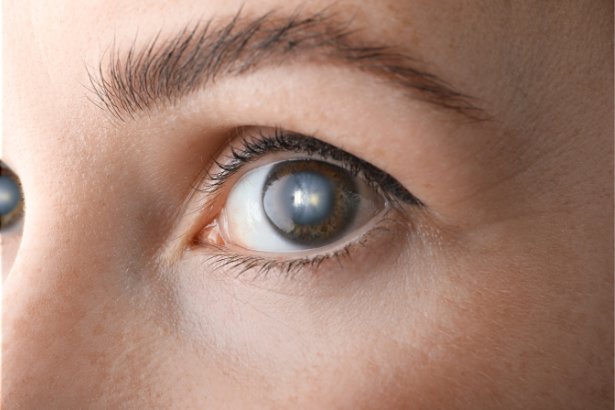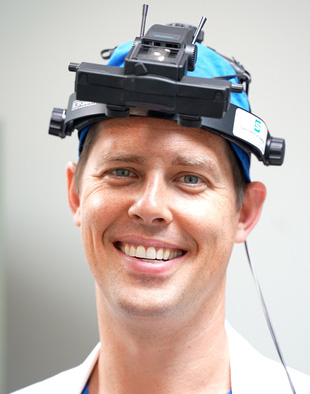When the clear lens inside your eye becomes cloudy, it’s called a cataract. Cataracts are a common cause of poor vision in older age, with symptoms such as blurry vision and the appearance of halos around lights. Ophthalmologists can restore your vision by removing the cloudy lens and replacing it with an artificial lens implant.
But sometimes, despite successful cataract surgery, a secondary issue may arise, causing the return of cataract symptoms. This side effect is known as posterior capsule opacification (PCO), or a secondary cataract.

What is Posterior Capsule Opacification?
PCO, commonly called secondary cataracts occur when the lens capsule, the part of the eye that holds the artificial lens implanted during cataract surgery, becomes cloudy. This cloudiness can cause vision to become blurry or hazy, similar to the symptoms experienced with the original cataract. The development of secondary cataracts is attributed to residual cells left behind after cataract surgery, which begin to grow and multiply on the capsule, forming a thick layer that obstructs vision. This process can take months or even years to become noticeable.
Who Is at Risk?
While anyone who has undergone cataract surgery is at risk for developing PCO, certain factors may increase the likelihood of their formation. These factors include age, certain medical conditions, and genetics.
Signs and Symptoms
Recognizing the signs and symptoms of PCO is crucial for timely intervention. The signs and symptoms of secondary cataracts are like those of primary cataracts and may include:
- Blurry or hazy vision
- Glare or haloes around lights
- Sensitivity to light
- Difficulty reading or seeing in dimly lit environments
How Are They Treated?
The good news is that secondary cataracts are treatable. A quick and painless procedure called a posterior capsulotomy (or YAG laser capsulotomy) can effectively restore clear vision. During this procedure, the clouded capsule is precisely targeted with a laser to create an opening, allowing light to pass through unobstructed. Most patients experience significant improvement in vision shortly after the procedure.
Remember, while secondary cataracts may develop after cataract surgery, they are treatable. Fear of their development should not deter you from undergoing cataract surgery if recommended by your eye care provider.
Act Today
If you’re experiencing symptoms of PCO or secondary cataracts or have concerns about your vision after cataract surgery, don’t hesitate to contact Eye Center South. Our team of experienced cataract specialists is here to provide comprehensive evaluations and personalized treatment options tailored to your unique needs. Call (800) 467-1393 to schedule your evaluation today and take the first step toward clear vision and a brighter future.






